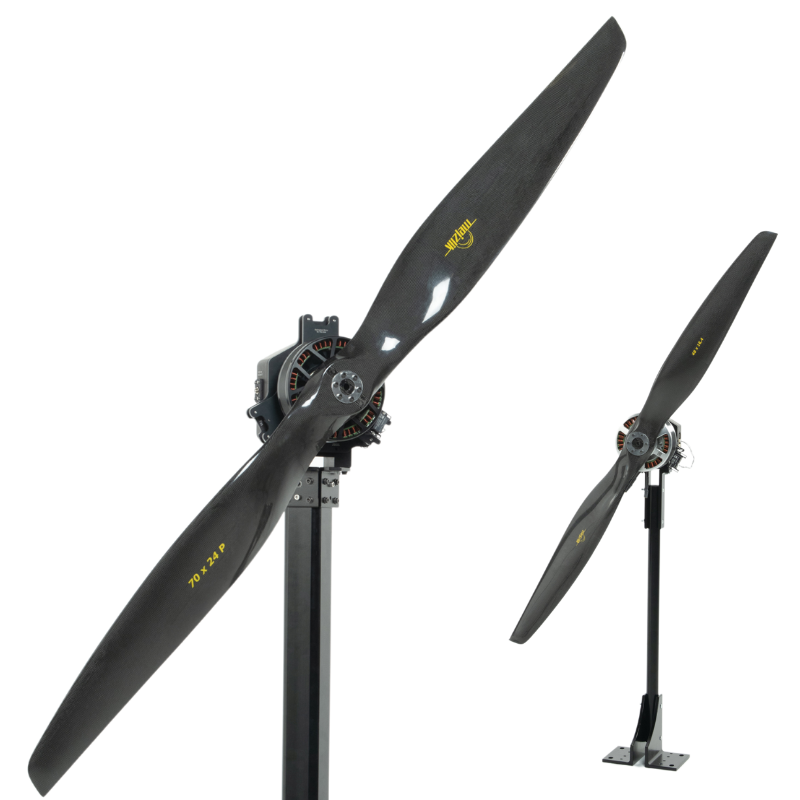When it comes to testing UAVs, aircraft, and other aerodynamic objects, controlled wind testing is essential. While simulations are valuable, there’s no substitute for real-world testing.
Today, organizations have three main options: renting time at a facility, purchasing a closed wind tunnel, or investing in a modular WindShaper system.
1. Renting Time at a Testing Facility
Renting wind tunnel time offers professional testing without the need for upfront equipment costs. It’s an excellent choice for short-term projects, providing access to high-quality facilities. However, costs can add up quickly with repeated use, and schedules are often limited by availability.
-
Academic facilities: ~$600 USD per hour (typically with an 8-hour minimum session)
-
Commercial facilities: $550–$650 USD per hour
-
Large-scale research tunnels: ~$7,000 USD for a 9-hour session, plus setup fees

2. Purchasing a Closed Wind Tunnel
For organizations with frequent testing needs, owning a closed-return wind tunnel ensures continuous access. This option requires a significant upfront investment, not only in the tunnel itself but also in building and housing the facility.
-
1 × 1 m test section wind tunnel: up to and above $1M USD, depending on features.
-
Facility construction: $300–$800 per square foot (a 2,000 sq ft facility adds close to $1M in costs).
While this option offers full control and performance, it’s best suited for teams with long-term testing requirements and substantial budgets.

3. Investing in a WindShaper
WindShapers are modular and scalable systems that can be expanded over time. From small propeller testing units to full-scale UAV setups, they offer flexibility across many research applications.

The cost of WindShapers is lower than closed return systems with the same size of test section. For more information on WindShaper pricing, contact our sales team.
Additionally, WindShapers have a smaller machine footprint, so facility construction and storage costs are lower.
WindShapers support both laminar and turbulent flows and can be adapted to suit a wide range of use cases, requiring both enclosed wind tunnels or open wind walls.
Side-by-Side Comparison
|
Feature |
Test Facility Rental |
Closed Wind Tunnel |
WindShaper |
|
Upfront cost |
None |
Higher |
High |
|
Facility investment |
None |
$300–$800 per sq ft |
$300–$800 per sq ft |
|
Machine footprint |
N/A |
12–50+ m² |
1–50+ m² |
|
Storage flexibility |
N/A |
None |
Detachable wheels + compact |
|
Scalability |
Limited |
Some upgrades |
Expandable with modules |
|
Installation time |
Hours |
Months to years |
Hours to days |
|
Availability |
Schedule in advance |
Always available |
Always available |
|
Customization |
Limited |
High |
Very high |
|
Travel / logistics |
Travel required |
None |
None |
|
Max airspeed |
350+ m/s |
350+ m/s |
16–58 m/s |
Which Option is Right for You?
-
Test facility rental: Ideal for short-term or occasional projects with minimal upfront costs.
-
Closed wind tunnel: Best for organizations with large budgets, frequent use, and exclusively requiring an enclosed test section.
-
WindShaper: The most flexible option, supporting both laminar and turbulent flows with scalable investment and an open or enclosed test section.
Each approach has its strengths, but the right choice depends on your project scope, frequency of testing, and budget.
For help exploring your options, contact our sales team.


 Back to Blog
Back to Blog


Leave a comment